第47章 THE REPUBLICS OF SOUTH AMERICA(7)
As the foreign pressure on Castro steadily increased, Luis Maria Drago, the Argentine Minister of Foreign Affairs, formulated in 1902 the doctrine with which his name has been associated. It stated in substance that force should never be employed between nations for the collection of contractual debts. Encouraged by this apparent token of support from a sister republic, Castro defied his array of foreign adversaries more vigorously than ever, declaring that he might find it needful to invade the United States, by way of New Orleans, to teach it the lesson it deserved! But when he attempted, in the following year, to close the ports of Venezuela as a means of bringing his native antagonists to terms, Great Britain, Germany, and Italy seized his warships, blockaded the coast, and bombarded some of his forts. Thereupon the United States interposed with a suggestion that the dispute be laid before the Hague Tribunal. Although Castro yielded, he did not fail to have a clause inserted in a new "constitution" requiring foreigners who might wish to enter the republic to show certificates of good character from the Governments of their respective countries.
These incidents gave much food for thought to Castro as well as to his soberer compatriots. The European powers had displayed an apparent willingness to have the United States, if it chose to do so, assume the role of a New World policeman and financial guarantor. Were it to assume these duties, backward republics in the Caribbean and its vicinity were likely to have their affairs, internal as well as external, supervised by the big nation in order to ward off European intervention. At this moment, indeed, the United States was intervening in Panama. The prospect aroused in many Hispanic countries the fear of a "Yankee peril" greater even than that emanating from Europe. Instead of being a kindly and disinterested protector of small neighbors, the "Colossus of the North" appeared rather to resemble a political and commercial ogre bent upon swallowing them to satisfy "manifest destiny."Having succeeded in putting around his head an aureole of local popularity, Castro in 1905 picked a new set of partially justified quarrels with the United States, Great Britain, France, Italy, Colombia, and even with the Netherlands, arising out of the depredations of revolutionists; but an armed menace from the United States induced him to desist from his plans. He contented himself accordingly with issuing a decree of amnesty for all political offenders except the leaders. When "reelected," he carried his magnanimity so far as to resign awhile in favor of the Vice President, stating that, if his retirement were to bring peace and concord, he would make it permanent. But as he saw to it that his temporary withdrawal should not have this happy result, he came back again to his firmer position a few months later.
Venting his wrath upon the Netherlands because its minister had reported to his Government an outbreak of cholera at La Guaira, the chief seaport of Venezuela, the dictator laid an embargo on Dutch commerce, seized its ships, and denounced the Dutch for their alleged failure to check filibustering from their islands off the coast. When the minister protested, Castro expelled him.
Thereupon the Netherlands instituted a blockade of the Venezuelan ports. What might have happened if Castro had remained much longer in charge, may be guessed. Toward the close of 1908, however, he departed for Europe to undergo a course of medical treatment. Hardly had he left Venezuelan shores when Juan Vicente Gomez, the able, astute, and vigorous Vice President, managed to secure his own election to the presidency and an immediate recognition from foreign states. Under his direction all of the international tangles of Venezuela were straightened out.
In 1914 the country adopted its eleventh constitution and thereby lengthened the presidential term to seven years, shortened that of members of the lower house of the Congress to four, determined definitely the number of States in the union, altered the apportionment of their congressional representation, and enlarged the powers of the federal Government--or, rather, those of its executive branch! In 1914 Gomez resigned office in favor of the Vice President, and secured an appointment instead as commander in chief of the army. This procedure was promptly denounced as a trick to evade the constitutional prohibition of two consecutive terms. A year later he was unanimously elected President, though he never formally took the oath of office.
Whatever may be thought of the political ways and means of this new Guzmin Blanco to maintain himself as a power behind or on the presidential throne, Gomez gave Venezuela an administration of a sort very different from that of his immediate predecessor. He suppressed various government monopolies, removed other obstacles to the material advancement of the country, and reduced the national debt. He did much also to improve the sanitary conditions at La Guaira, and he promoted education, especially the teaching of foreign languages.
Gomez nevertheless had to keep a watchful eye on the partisans of Castro, who broke out in revolt whenever they had an opportunity.
The United States, Great Britain, France, the Netherlands, Denmark, Cuba, and Colombia eyed the movements of the ex-dictator nervously, as European powers long ago were wont to do in the case of a certain Man of Destiny, and barred him out of both their possessions and Venezuela itself. International patience, never Job-like, had been too sorely vexed to permit his return.
Nevertheless, after the manner of the ancient persecutor of the Biblical martyr, Castro did not refrain from going to and fro in the earth. In fact he still "walketh about" seeking to recover his hold upon Venezuela!